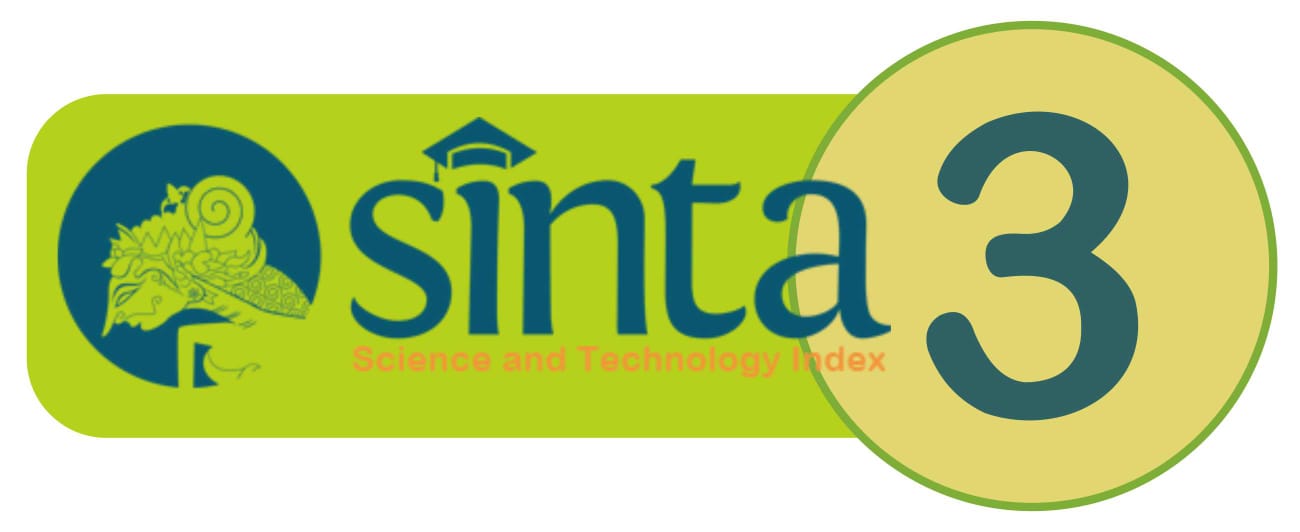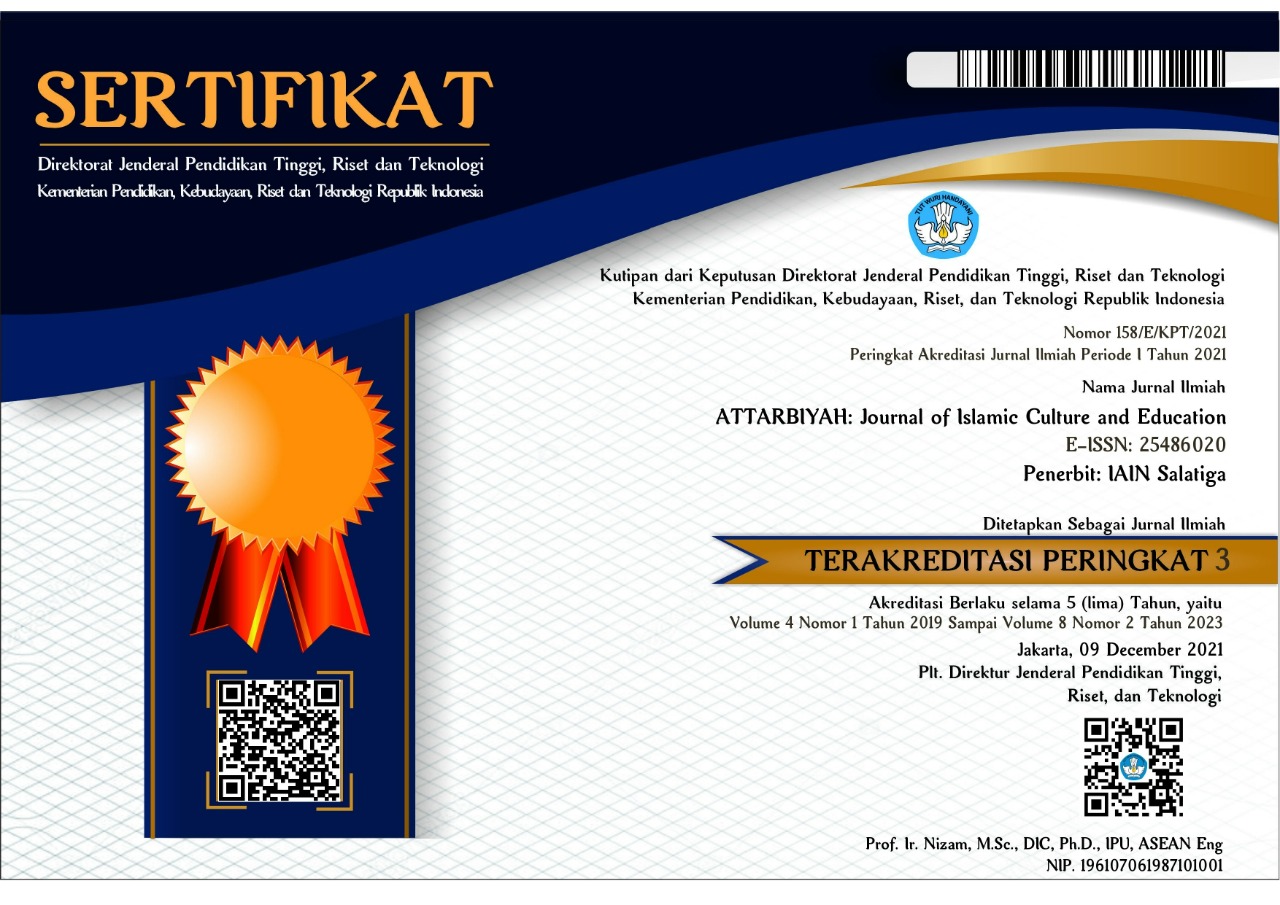Entrepreneurship education in Islamic perspective
Abstract
21st century, where trade in the digital world has advanced rapidly. Hence, it takes an entrepreneur who is proficient in technology to keep up with the times. Therefore, entrepreneurship education is owned by an entrepreneur and must be applied to start from elementary school education to tertiary education to build the younger generation's soul and reduce unemployment in Indonesia while still implementing good Islamic entrepreneurship.
Keywords
Full Text:
PDFReferences
Abdullah, M. (2011). Wirausaha Berbasis Syari'ah. Antasari Press.
Chandra, P. E. (2001). Menjadi entrepreneur sukses. Grasindo.
Alfianto, E. A. (2012). Kewirausahaan : Sebuah Kajian Pengabdian Kepada Masyarakat. Jurnal Heritage, 1(2), 33–42.
Hakim, D. (2012). Pengembangan Pendidikan Kewirausahaan Berdasarkan Nilai-Nilai Budaya. Prosiding Seminas Competitive Advantage, 14–23.
Harefa, A. (2006). The Ciputra's way: praktik terbaik menjadi entrepreneur sejati. Elex Media Komputindo.
Hijriah, H. Y. (2016). Spiritualitas Islam dalam Kewirausahaan. Tsaqafah, 12(1), 187. https://doi.org/10.21111/tsaqafah.v12i1.374
Kamaluddin. (2019). Pendidikan Kewirausahaan Dalam Pandangan Islam. Jurnal AnNahdhah, 1(1). http://eprints.walisongo.ac.id/7149/3/BAB II.pdf.
Kementrian Koordinator Bidang Perekonomian Republik Indonesia. (2017). Kewirausahaan melalui integrasi e-commerce dan media sosial. April.
Kholis, N. (2018). Etos Kerja Islami. Researchgate. https://www.researchgate.net/publication/326571286_ETOS_KERJA_ISLAMI_1.
Kurnia, C. F., Yuwana, N. N., & Cahyani, A. P. (2018). Pengembangan Jiwa Kewirausahaan di Kalangan Mahasiswa dengan Memanfaatkan Teknologi Digital. Sinergitas Quadruple Helix: E-Business Dan Fintech Sebagai Daya Dorong Pertumbuhan Ekonomi Lokal, 188–192.
Mahdany, D. (2019). Pendidikan Kewirausahaan Dalam Pandangan Islam. Jurnal AnNahdhah, 12(23), 53–82.
Meredith, G. G. (1996). Kewirausahaan Teori dan Praktik. Pustaka Binaman Pressindo.
Mila, H. (2013). Pendidikan Kewirausahaan: Sebuah Alternatif Mengurangi Pengangguran Terdidik Dan Pencegahan Korupsi. Al-Ta Lim Journal, 20(3), 465–471. https://doi.org/10.15548/jt.v20i3.44.
Molan, B. (1991). Manajemen Sumber Daya Manusia. PT Prenhalindo.
Mukhadis, A. (2013). Sosok Manusia Indonesia Unggul dan Berkarakter Dalam Bidang Teknologi Sebagai Tuntutan Hidup di Era Globalisasi. Journal UNY.
Nas, M. (2010). Kedahsyatan Marketing Muhammad. Pustaka Iqro.
Notoatmojo, S. (1998). Pengembangan Sumber Daya Manusia. PT Rineka Cipta.
Kemendiknas Balitbang Pusat Kurikulum. (2010). Bahan Pelatihan Pengembangan Pendidikan Kewirausahaan.
Prastyaningtyas, E. W., & Arifin, Z. (2019). Pentingnya pendidikan kewirausahaan pada mahasiswa dengan memanfaatkan teknologi digital sebagai upaya menghadapi revolusi 4.0. Proceedings of the ICECRS, 2(1), 281–285.
Purnomo, R. A. (2016). Ekonomi Kreatif: Pilar Pembangunan Indonesia. Ziyad Visi Media.
Siagian, S. & Asfahani. (1999). Kewirausahaan Indonesia dengan Semangat 17-8-45. PT Putra Timur bekerjasama dengan Puslatkom dan PK Depkop. Qur'an Kemenag. (n.d.).
Raco, J. (2018). Metode Penelitian Kualitatif: Jenis, Karakteristik Dan Keunggulannya. Jurnal IAIN Ponorogo. https://doi.org/doi.org/10.31219/osf.io/mfzuj>.
Shihab, M. Q. (2001). Tafsir al-Misbah: Pesan, Kesan dan Keserasian al-Qur'an. Lentera Hati.
Suryanto. (1977). Kamus Lengkap Bahasa Indonesia. Apollo.
Susilaningsih. (2017). Pendidikan Kewirausahaan di Perguruan Tinggi: Pentingkah untuk Semua Profesi? Jurnal Economia, 11.
Tasmara, T. (1994). Etos Kerja Pribadi Muslim. PT Dana Bhakti Wakaf.
Yuliana, E. (2017). Kewirausahaan Dalam Perspektif Islam. Ta'dib, 15(2), 29–44. https://jurnal.iaihnwpancor.ac.id/index.php/tadib/article/view/183%3E.
Yusanto, I. (2002). Menggagas bisnis Islami / Muhammad Ismail Yusanto, Muhammad Karebet Widjajakusuma.
DOI: https://doi.org/10.18326/attarbiyah.v7i1.63-79
Refbacks
- There are currently no refbacks.

ATTARBIYAH: Journal of Islamic Culture and Education by http://attarbiyah.iainsalatiga.ac.id/ is licensed under a Creative Commons Attribution-ShareAlike 4.0 International License
----------------------------------------------------------
ATTARBIYAH : Journal of Islamic Culture and Education IAIN SALATIGA p-ISSN: 0215-9996, e-ISSN: 2548-6020



